Human-wildlife conflict and coexistence is a shockingly common problem, often with enormous consequences for both individual animals and entire populations.
When human-wildlife conflict comes to mind, you may immediately think of wildlife crime instead - which isn't wrong, since many regions with wildlife crime problems like poaching are also areas where people may frequently deal with human-wildlife conflict, causing the two issues to go hand-in-hand. But human-wildlife conflict is a much broader issue encompassing many ways that human presence and interference can cause problems for us and animals alike. Human-wildlife conflict includes:
- Elephants trampling a farmer's crops, resulting in retaliation
- New real estate developments infringing on ecosystems where predator species live, leading to predators having less territory and less food, which in turn leads to predators attacking domestic animals and livestock
- Freeways dividing the territory of animals like mountain lions, leading to wildlife venturing into neighborhoods or being killed by cars
- Lead bullets used in hunting causing scavengers like condors to die of lead poisoning
These are just a few examples of how humans can negatively impact wildlife, and it's clear to see how many of these scenarios could escalate. Human-wildlife conflict solutions don't just include ways in which we can prevent these issues (for example, through tracking predators, monitoring populations' territories, or building barriers and wildlife crossings monitored by sensors), but also the ways in which we can help people connect with wildlife and care about learning to live alongside them.
If you're interested in solutions that can prevent human-wildlife conflict, join this group and get to know the people who are working to protect and save species around the world!
Header image: Casey Allen on Unsplash
No showcases have been added to this group yet.
- @UrsusAmer66
- | He/Him
Research Ecologist focused on human disturbance and ecophysiology
- 0 Resources
- 0 Discussions
- 5 Groups
Noé
Hi! I am Aurélie, a dedicated French ornithologist and engineer specialized in conservation technologies. I am currently Program manager for the biodiversity of natural habitats' program in a French NGO called Noé.

- 0 Resources
- 1 Discussions
- 5 Groups
Gui
- 0 Resources
- 0 Discussions
- 7 Groups
Ol Pejeta Conservancy
Endeavoring to implement tech solutions for conservation.



- 0 Resources
- 18 Discussions
- 11 Groups
- @ppebs
- | she/her
Primatologist who studies human-primate coexistence and self-medicative behavior in non-human primates
- 0 Resources
- 1 Discussions
- 7 Groups
Wildlife Drones
Wildlife Drones has developed the world’s most innovative radio animal-tracking system using drones so you can track your radio-tagged animals like never before.


- 18 Resources
- 8 Discussions
- 31 Groups
- 0 Resources
- 0 Discussions
- 9 Groups
- @jmasseloux
- | She/Her
Programme Coordinator and M&E Specialist at ZSL Thailand

- 0 Resources
- 3 Discussions
- 2 Groups
- 0 Resources
- 0 Discussions
- 10 Groups
- @emilyhuston
- | she/her/hers
Hi! I am currently pursuing a masters degree in wildlife conservation and management, and I am looking to gain more information and form connections with people who are interested in all the same things :)
- 0 Resources
- 0 Discussions
- 6 Groups
- @GrecoBobby
- | He/Him
PhD Student Clemson University. Investigating applied management techniques in crocodilians
- 0 Resources
- 0 Discussions
- 4 Groups
Conservation Director, Texas with National Audubon Society
- 0 Resources
- 4 Discussions
- 3 Groups
Article
Human-wildlife conflict can be difficult to understand without knowing its impact on people and communities. In this case study, authored by community member and Human Wildlife Conflict Tech Challenge coordinator Femke...
19 September 2017
Earlier this year, WILDLABS community member Shashank Srinivasan was involved in an operation to capture the Pilibhit man-eater. In this account, he shares how they successfully managed to tranquilize and capture the...
10 August 2017
Frustrated by the limitations of the tools that were available for managing large camera trap data sets, Heidi Hendry and Chris Mann set out to develop something that met their needs, and thus, Camelot was born. In...
7 July 2017
Funding
The European Space Agency is calling for Kick-Start ideas to leverage space technology for wildlife protection. Three main topics of interest have been identified: 1) Wildlife monitoring, tracking and inventory, 2)...
5 July 2017
In this From the Field interview, we speak to Eric Becker, a conservation technology engineer at the World Wildlife Fund US. He talks about his work in technology design and the key challenges he's experienced...
22 May 2017
In this From the Field interview, we speak to Dr. Raman Sukumar, a world renowned expert on Asian elephant conservation. He shares his thoughts on how technology could be used for mitigating elephant-human conflict, and...
5 April 2017
The Camera Traps group is one the most active in our community, with members keen to discuss approaches to data management and processing, study design, and new software and hardware developments. Indeed, the top entry...
23 March 2017
In our new From the Field series, we're speaking with WILDLABS members to discover how they use technology in their work. Through these interviews we will be showcasing the variety of technologies our members are...
22 March 2017
Are you ready for this year's #Tech4Wildlife Photo Challenge? In anticipation, we're counting down our ten favourite entries from last year. Do you think you can top these?
1 March 2017
Carpathian shepherd dogs have been reintroduced to the Zarand Landscape Corridor to guard livestock and help mitigate human-wildlife conflict in Romania.
28 February 2017
The Conservation Leadership Programme (CLP) is a training and capacity building programme that targets individuals from developing countries who are early in their conservation career and demonstrate leadership...
21 November 2016
Technology by itself will not save pangolins or elephants, but it can help make major progress.
14 November 2016
October 2025
event
September 2024
event
32 Products
3 R&D Projects
42 Organisations
Recently updated products
Recently updated R&D Projects
Recently updated organisations
| Description | Activity | Replies | Groups | Updated |
|---|---|---|---|---|
| Hi all, Just saw this on the BBC website: http://www.bbc.co.uk/news/blogs-news-from-elsewhere-38288999 Dogs in one town... |
|
Human-Wildlife Coexistence | 8 years 8 months ago | |
| @Suzanne.Stone have you had any success with your trials in Idaho? |
|
Human-Wildlife Coexistence | 8 years 9 months ago | |
| Hi everyone! I have just posted about my machine-vision based elephant-detection system which I am currently attempting to develop! https://www.wildlabs.net/... |
|
Human-Wildlife Coexistence | 8 years 9 months ago | |
| Hi all, I thought I'd alert you to this recent journal article, which looked at all published research on predator... |
|
Human-Wildlife Coexistence | 8 years 11 months ago | |
| Hi John, I have two good friends in Kenya who have some answers. I'll ask them to come here and tell you more... Marie |
|
Human-Wildlife Coexistence | 8 years 11 months ago | |
| http://gizmodo.com/drawing-eyes-on-cow-butts-may-ward-off-hungry-lions-1783744270 Drawing Eyes on Cow Butts May Ward Off Hungry... |
|
Human-Wildlife Coexistence | 9 years ago | |
| Hello all, Another thought I had regarding human-wildlife conflict. Since wildlife migrations occur around similar times, every year,... |
|
Human-Wildlife Coexistence | 9 years 3 months ago | |
| Ho John, That's a great idea and thanks for sharing, but as you said, limitations on battery and speaker capacity abound. Might anyone else have any thoughts on how we... |
|
Human-Wildlife Coexistence | 9 years 3 months ago |
5 Smart Technologies That Will Crack Down On Wildlife Trafficking
14 November 2016 12:00am
WildLabs success! E-shepherd predator deterrent trials in USA
25 January 2016 8:04pm
26 April 2016 2:12pm
@Rachel , the last time I checked (2015), it was about R1200-00 per collar. In South Africa that can be approximated as the price of one sheep. To my mind, that only makes it viable and affordable if the predation (or theft?) levels are very high (more than 10% losses/year?).
I have to add two additional observations:
- Sheep breeds differ in the extend to which they flock together in a single herd (e.g. African indigenous breeds graze together in larger herds than the most popular breeds in South Africa (Merino or Dorper). In these breeds it might be possible to have less collars per sheep.
- My greatest fear is that it will work wel for a year or two. Jackals (and I assume coyotes as well) are extremely intelligent. And methods which worked at first (e.g. bell collars) soon became useless. With jackals we also have the issue that many of the jackals on farms are now starting to hunt in packs instead of the typical territorial pairs (with helpers). So a commonly solitary hunter (the pairs would often hunt separately) is now turning into a pack hunter. However, I do think that it might remain fairly effective against solitary cats. I would be interested in the results of the tests in America, but I think it should be for at least a 3 year period (I know funding etc. might be an issue).
3 November 2016 5:09pm
@Suzanne.Stone have you had any success with your trials in Idaho?
Camera Trap based Alarm Systems
22 March 2016 9:14am
12 April 2016 10:19am
This might be a silly question, but why do you need a camera trap for either purpose - unless you want a record of specific individuals?
If the aim is to provide an alarm to scare off elephants then a system that uses a simple motion sensor wired to an alarm would do the same thing at a much lower cost without the risk of damage or theft that all camera traps suffer from.
If the aim is to alert locals then the Indian Nature Conservation Foundations Elephant Early Warning System is worth exploring http://ncf-india.org/projects/in-the-elephant-hills
21 April 2016 9:01pm
Hi James,
Thanks for sharing information on NCF's early warning system. NCF's tool is great and works well for the context in Valparai where it's being used. We work closely with them as well. As you are aware, the context for each conflict situation is different. These are open plantation areas where elephants can be seen if present in any patch, while in other areas, it's harder to tell when they come out of forested protected areas and into adjacent habitation in order to warn people. And for a number of the landscapes where we work, that particular approach may not be as effective, we are trying to test other forms of early detection. Do let us know if you learn of any results from camera-trapping early warning systems as well using a tool that could potentially serve multiple purposes. Many thanks.
Nilanga
27 October 2016 11:01pm
Hi everyone!
I have just posted about my machine-vision based elephant-detection system which I am currently attempting to develop! https://www.wildlabs.net/community/thread/284
Internet Cats Just Got Bigger
26 October 2016 12:00am
New journal article shows deficiency of studies on effectiveness of predator controls
2 September 2016 1:46pm
How can we bridge the gap in mitigating human-wildlife conflict?
2 August 2016 1:23pm
27 August 2016 5:09am
Hi John, I have two good friends in Kenya who have some answers. I'll ask them to come here and tell you more...
Marie
Perspectives from the World Ranger Congress
10 August 2016 12:00am
Wildlife Tracking Equipment Grants from Holohil Transmitters
20 July 2016 12:00am
Article: Drawing Eyes on Cow Butts May Ward Off Hungry Lions
19 July 2016 7:25am
Camera traps reveal mysteries of nature
18 July 2016 12:00am
Can Drones Live up to the Hype?
8 July 2016 12:00am
Passive Acoustic Monitoring: Listening Out for New Conservation Opportunities
29 June 2016 12:00am
TEAM Network and Wildlife Insights
28 April 2016 12:00am
Migration monitoring app
25 April 2016 1:36pm
Deterring bears while backpacking
5 April 2016 3:15pm
19 April 2016 3:32pm
Ho John,
That's a great idea and thanks for sharing, but as you said, limitations on battery and speaker capacity abound. Might anyone else have any thoughts on how we could use apps to prevent HWC? There are apps that provide the ability to track wildlife through satellite collars for monitoring purposes. Is anyone aware of whether this type of app is being used also for HWC prevention using geo-fencing through collars or other means? Thanks.
Nilanga
15th International Elephant & Rhino Conservation and Research Symposium
4 March 2016 12:00am
Mobile Phone Reporting for Rapid Wildlife Health Response in Uganda
22 December 2015 12:00am
Achieving Moonshots: Advancing Humankind and Preserving Nature
22 December 2015 12:00am
The Impact of the Internet of Things
10 December 2015 12:00am

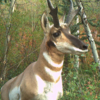



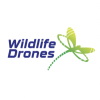
















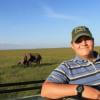





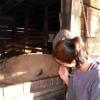
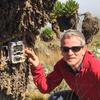

11 February 2016 8:14pm
Thanks, @Suzanne.Stone ! It would be wonderful if the community could track your progress in this thread. Also looking forward to reading your Journal of Mammology paper.
- Rachel